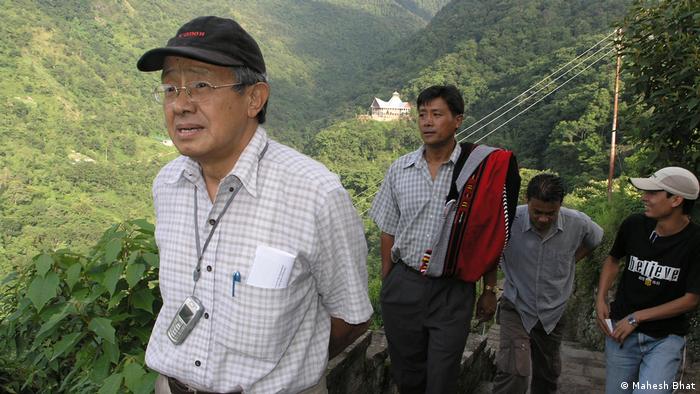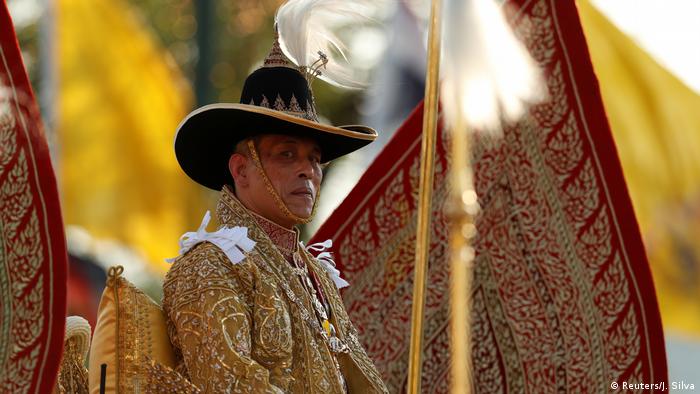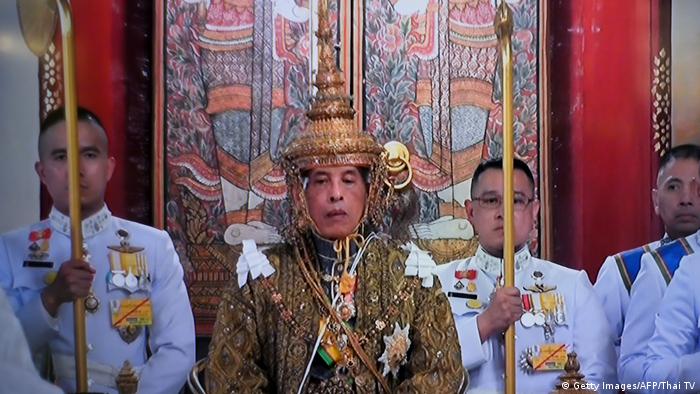India's Nagaland conflict exposes ancient tribal tensions
India's northern Naga tribes have been in a 50-year dispute with authorities over being recognized by New Delhi. Despite promises of rapprochement, armed tension continues. Anktia Mukhopadhyay reports from Kohima.

India's northeastern state of Nagaland is embroiled in a conflict dating back more than half a century, and Prime Minister Narendra Modi wants to end one of the longest running guerilla insurgencies in Asia, which has seen thousands of people killed.
However, the Indian government took its first steps towards resolving the dispute only in 2015 by introducing a framework agreement with a Naga nationalist group called the National Socialist Council of Nagalim – Isaac-Muivah (NSCN-IM).
One of the terms of the agreement included granting "special status" to Naga people within India.
In August 2019, Modi asked interlocuter and current Governor of Nagaland R N Ravi to conclude talks with NSCN-IM and sign a final agreement to end the conflict within three months.
Nearly a year has passed, and there is still no end in sight for the conflict. Tensions grew in July when the Indian army and paramilitary forces started cracking down on NSCN-IM soldiers in the states of Arunachal Pradesh and Nagaland, targeting their arms trade and ammunition.
A government officer, who requested to be anonymous, said that Governor Ravi wants to force the NSCN-IM to the negotiating table by attacking their sources of funding. Naga leaders have repeatedly delayed talks on finalizing the deal.
"The NSCN continues to stay firm on its demand for a separate Naga flag and recognized constitution, which is a difficult demand for the government to accept," said Angshuman Choudhury, a researcher at New Delhi's Institute of Peace and Conflict Studies.
Read more: India signs landmark peace agreement with Nagaland separatist group
The people of Nagaland
The origins of the Nagaland conflict can be traced back prior to India's independence. Naga tribes are spread out across several states in northeast India and parts of Myanmar. They declared their independence before the British left India, but were forcefully assimilated into the republic of India in 1947.

Zakengu-ü is a midwife and village doctor in Khonoma, Nagaland. Khonoma is a village in southern Nagaland. It is a stronghold of the Angami tribe, one of the sixteen major tribes of the land
Matters were complicated in 1955 when the Indian government targeted the Naga National Council (NNC), the first organized Naga political force, prompting most NNC leaders to go underground. The NNC eventually split into two factions – the NSCN-IM and the NSCN-Khaplang. The Indian government took advantage of the new division.
Negotiations with the NSCN-IM remain complicated, as Nagas are demanding the integration of their ancestral homelands, which include territories in Assam, Manipur and Arunachal Pradesh. All three states have refused to cede territory to the Nagas.
An observer of the crisis, who requested to remain anonymous, said the Nagas "have no sense of guilt or doubt about the rightness of the facts of their history. They cannot accept being treated as secessionists or separatists by Delhi."
Many Naga people also feel India has failed to effectively "integrate" Nagaland with the rest of the country. Some say Delhi's lack of understanding about their tribal culture results in decisions which are not in the best interest of Nagaland.
Read more: Naga rebels lift blockade of Manipur
Those who migrated for better economic opportunities have also reported frequent discrimination, while others feel alienated by the current Hindu nationalist government. The majority of Nagas are Christian.
A lawyer based in the Nagaland capital of Kohima said Naga tribes wants a solution "but not at the cost of burying the Naga national history."
"We would prefer an arrangement like that of the UK and Scotland," he said.

Niketu Iralu, a Naga elder and well-known peace and social activist in Nagaland
A question of politics
Opponents criticize Ravi for approaching Nagaland like a "law enforcement issue" instead of a political one.
"Ravi is a policeman who only understands law and order and sees everything through that lens," said journalist Subir Bhaumik.
Bhaumik said the government would not have signed a framework agreement with NSCN-IM in 2015 "if Nagaland was a law and order issue." According to the journalist, misunderstandings surrounding the history and identity of the Naga people have complicated negotiations.
Delhi views Nagaland as a "disturbed area" and has kept the state under a draconian Armed Forces Special Powers Act (AFSPA). The act extends wide-ranging powers to the army, including the use of force and arrests without warrants. The AFSPA was extended this year until December.
Read more: India: Animal rights activists hail dog meat ban
Internal division in Nagaland
On June 25, Ravi's letter to Nagaland Chief Minister Neiphiu Rio was leaked. In the letter, Ravi alleged that the state government had been a "mute spectator" as "armed gangs" engaged in extortion and violence in the region. Ravi also alleged that "law and order" in Nagaland has collapsed.

View of Ukhrul town in Manipur, which is the home of Thangkul Nagas
"There are some elite groups and locals in Nagaland who pay money to the insurgents. Either they are supporters or they are forced to pay up, fearing attack on them and their kin," a government officer said in response to a request for comment.
"The central government is worried that Naga armed groups including the NSCN-IM continue to exert their parallel authority in the state and in turn, dilute the peace process," said researcher Choudhury.
In response, the NSCN-IM said that they ran a legitimate government and charged legitimate taxes.
Meanwhile, Niketu Iralu, a Naga elder, warned the years-long conflict cannot be resolved by underestimating the positions of the Nagas and the government of India.
"Delhi can't ignore the facts of the history of the Nagas, the most important one of which is that they had declared they were not a part of the new map India inherited from the British. For this reason, the Nagas say their movement is not a struggle for secession," he said.
"India is a very ancient civilization, but it is a young democracy. It can't calmly discuss this issue with the Nagas."








